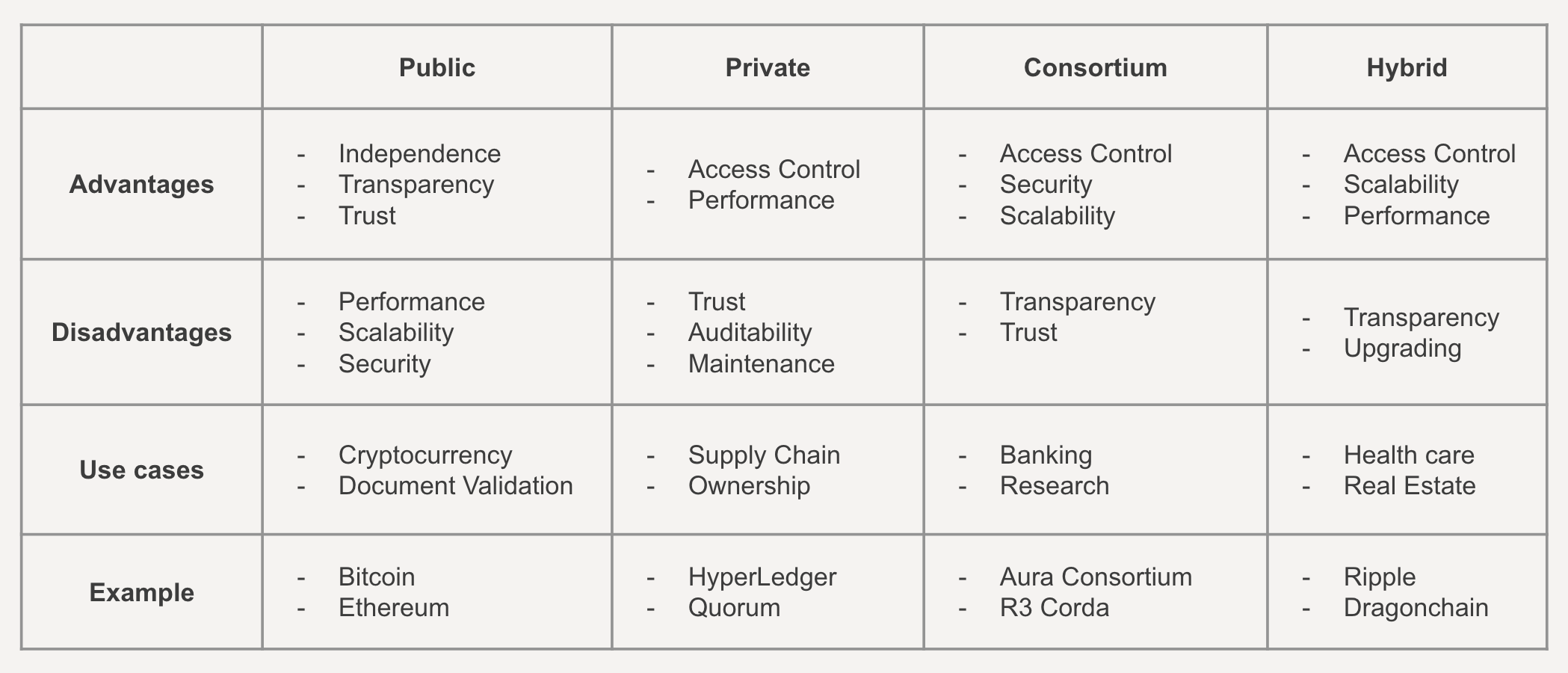A Competitive Analysis of Blockchain Ecosystems
In 2023 there are 1,000+ blockchains in circulation, used in different industries and for various applications. Blockchain ecosystems have emerged as a pivotal component of the digital landscape, offering diverse applications across industries. A competitive analysis of these ecosystems reveals the strengths and weaknesses of different blockchain platforms and their potential impact on the market.
Ethereum
One of the most prominent blockchain ecosystems is Ethereum. Known for its smart contract capabilities, Ethereum has a robust developer community and a wide array of decentralized applications (DApps). Its first-mover advantage and extensive network of users make it a formidable player in the blockchain space. However, it faces scalability issues, which can lead to network congestion and high transaction costs.
Polygon
A Layer 2 scaling solution for Ethereum, offers several advantages. It enhances transaction speed and reduces costs, addressing Ethereum's scalability issues. Its compatibility with Ethereum contracts and assets fosters interoperability. However, Polygon's reliance on Ethereum exposes it to potential network congestion. Despite this con, Polygon remains a popular choice for developers seeking to build decentralised applications with a smoother user experience.
Flow
Flow, a blockchain platform, has distinct pros and cons. Its advantages include a developer-friendly environment and high throughput for applications. However, it's relatively new and less established, facing challenges in terms of network security, adoption, and ecosystem development compared to more established blockchains.
Cardano
Has gained attention for its research-driven approach and focus on high scalability, sustainability, and security through its proof-of-stake protocol. While it has made significant progress, it still faces slower ecosystem development and adoption rates, and a less robust dApp ecosystem compared to more established blockchains.
Quorum
An Ethereum-based private blockchain, excels in high-speed transaction processing, privacy features, and is ideal for enterprise applications. However, its private, permissioned nature and lacks of a large developer community and ecosystem makes it not as versatile for public applications as other blockchains.
StarkNet
A Layer 2 scaling solution for Ethereum, offers high scalability, reduced transaction costs, and strong security through zero-knowledge proofs. However, its intricate design can make it difficult for many developers to adopt, and it requires specific expertise for effective use. Additionally, as a newer technology, it faces integration challenges with existing infrastructure and ecosystems.
Competitive analysis in the blockchain space is complex, as each ecosystem has its unique features and trade-offs. Depending on the specific use case, different platforms may be more suitable, and understanding the nuances of each ecosystem is essential for businesses and developers to make informed choices within the blockchain landscape.
These have pros and cons as well as specific areas of applications which can be categorised into 4 major groups:
Public
Private
Consortium
Permissioned (Hybrid)
Desirable features for the DPP EU regulations
For the nature of the Digital Product Passport, a tool designed for collecting and sharing product data throughout its entire lifecycle used to illustrate a product's sustainability, environmental and recyclability attributes, we recommend clients use a PUBLIC BLOCKCHAIN. Between the public blockchains available we recommend to focus on the following features:
Ethereum Virtual Machine compatible blockchains that can be upgraded to a different EVM-compatible system - COMPATIBILITY and INTEROPERABILITY
Layer 2 blockchain to mitigate any disadvantages of public blockchains - LOWER TRANSACTIONAL COST and IMPROVED PERFORMANCES
Active ecosystem with large communities of blockchain developers, transactions and projects - LONG-TERM PROJECT UPDATABILITY and SUSTAINABILITY
To be sure we analysed the complete ecosystem, we also examined the most popular non-EVM compatible and private blockchain options below:
The ORDRE Group recommends that, as at October 2023, the Polygon Blockchain most accurate complies with the DPP EU regulations and the majority of Authentique clients.
Contact info@ordre.com for Authentique inquiries or further information on the above.


